EU Enlargement Is Going the Route of "Titanic"
Adelina Marini, April 6, 2016
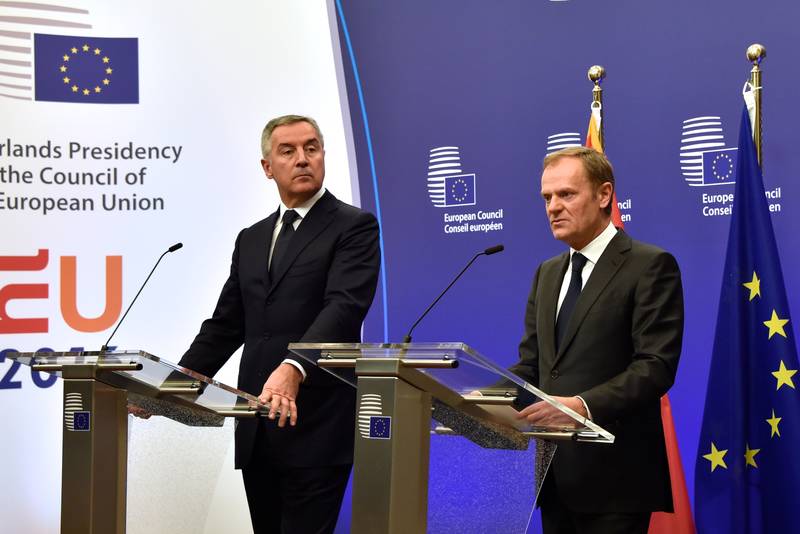
The EU’s enlargement policy has turned in recent years from the most successful into the weakest and least perspective community policy. After in the summer of 2013 the EU swallowed the 28th member, the process got stuck in the quagmire of geopolitics, reforms fatigue and the European Union’s failing attractiveness as a guiding light to a better world and life in general. Thus, the words of European Council President Donald Tusk (Poland, EPP) of a week ago that Montenegro is a frontrunner in the enlargement process sounded ludicrous at the backdrop of the company in which the only “normally” negotiating candidate-country is at the moment. His words sounded ludicrous in another direction as well – the European Union itself, which is shaking from internal strife, exit threats, bankruptcies, returns of sovereignty, nationalisms. The European “Titanic” is sinking and Donald Tusk is singing along with the orchestra that everything is fine and encourages passengers to continue boarding.
“The frontrunner” Montenegro
Montenegro is the only candidate country which is having normal negotiations with the EU at the moment. The country started the negotiations process officially in 2012. On December 18th, 2013 Montenegro opened the first chapters under the new negotiations system – starting from the Chapters, which are difficult to the region – 23 “Judiciary and fundamental rights” and 24 “Justice, freedom and security”. Since then, 22 chapters have been opened, with two of them provisionally closed (because negotiations do not end until the accession treaty is signed). In this sense, purely empirically, against the backdrop of all the others that are currently negotiating, Montenegro truly is a frontrunner, for it has opened the most chapters to date and not a single one is blocked for some reason – unresolved bilateral disputes with a member state, cultural-religious differences, or something else..
The problem is, however, that the country is showing negligible progress, as Commissioner for Enlargement Negotiations Johannes Hahn (Austria, EPP) noted at the vote on Montenegro’s progress report in the European Parliament on March 9th. “Our assessment is, unfortunately, that real progress on the ground in the rule of law remains limited, including in establishing a track record in the fight against corruption and organised crime”. Besides failing to deal with these serious problems, Montenegro is being also torn apart by a severe political crisis, which includes a substantial geopolitical element. The situation worsened considerably when Montenegro received an official invitation to join NATO. At that point the pro-Russian parties in the country began organising mass street protests, demanding the resignation of PM Milo Đukanović, who was accused of corruption and authoritarianism.
All these are reasonable claims, but in a geopolitical context they place the EU (and NATO by the way) in a very difficult situation – backing undemocratic regimes for the sake of their geopolitical interests. At the moment, the situation in the small Balkan republic is far from stable. Snap elections are possible this year. In the words of PM Đukanović they could be held in the autumn. Although NATO membership is not a prerequisite for an EU membership, it is welcomed by the Union. Until Montenegro joins the pact, however, the risk that it will totally derail is large, due to the enormous pressure it is being subjected to both by Russia itself and by its larger neighbour Serbia. The EU seems to have a faint clue what the candidate is facing. During his meeting with Mr Đukanović, Donald Tusk thanked Montenegro for its “principled position” regarding the Ukraine crisis.
In other words, this means that the EU is happy that Montenegro imposed sanctions against Russia because of the unlawful annexation of the Crimea. High Representative of the European Union for Foreign Affairs and Security Policy Federica Mogherini (Italy, Socialists and Democrats) thanked very directly for the fact that Podgorica has “aligned” with the EU’s foreign policy positions. She thinks that Montenegro’s NATO membership will further enhance stability in the region. Keeping in mind the heavy political challenges, faced by the country, and its geopolitical orientation, the EU must be certain that Montenegro will not mark serious progress on negotiation chapters any time soon. It was namely the chief negotiator for the country with the EU, Aleksandar Andrija Pejović, who stated not long ago that the country suffers from reforms fatigue.
Serbia – a stability factor (?)
The government of Prime Minister Aleksandar Vučić set itself the ambitious goal of finishing the accession negotiations by the year 2018, so that by 2020 it can join the EU. Officially, Serbia has started negotiations on 21st January 2014. However, it had to wait for almost a full year before the first negotiation chapters were opened. This happened on December 14th of last year, but they were not the ones that Belgrade was hoping for – 23 and 24, but Chapter 32 “Financial control” and Chapter 35, which deals with Serbia’s relations with Kosovo. The latter will be the last one to be closed, if it is closed at all, for current Serbian attitudes, voiced by President Tomislav Nikolić, are that Serbia will not enter the EU if the price to pay for it is recognising Kosovo. This means that Serbia will not be allowed in the EU until this issue is settled, for it cannot join the EU while its Constitution says that Kosovo is part of its territory, and the Union on the other hand has a signed stabilisation and association agreement with Kosovo. Moreover, Kosovo has not been recognised by five EU member states.
While waiting for the opening of the next chapters, again numbers 23 and 24, in the beginning of the year, Serbia woke up with a blockade exactly on Chapter 23. The blockade came from neighbouring Croatia because of Vojislav Šešelj, whom Serbian authorities failed to return in the custody of the Hague Tribunal, which had to read its verdict of the first instance in his absence. Croatian Minister of Foreign Affairs Miro Kovač gave Serbia three conditions for the lifting of the veto on Chapter 23: Serbia is to remove the universal jurisdiction from its legislation, which allows it to prosecute for war 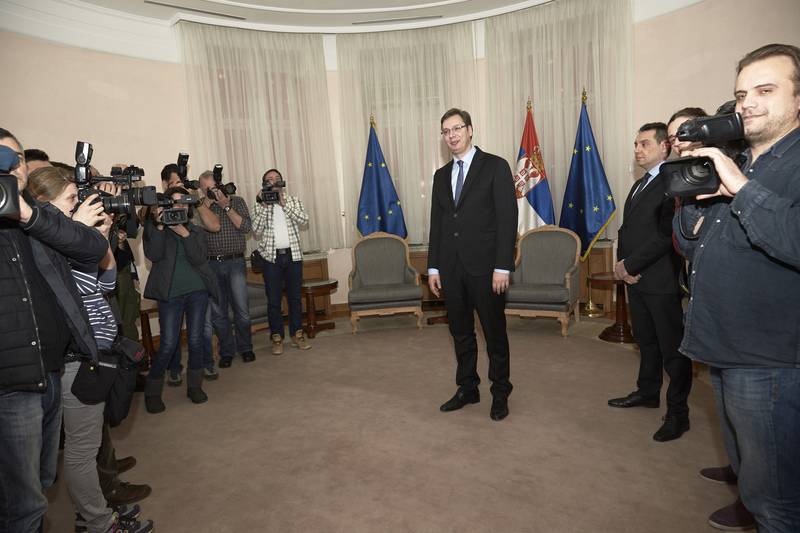 crimes outside its own territory; to respect minority rights; full cooperation with the International Criminal Tribunal for the former Yugoslavia in The Hague. According to a well informed diplomatic source, Croatia is the only EU member state to block the opening of Chapter 23 with Serbia.
crimes outside its own territory; to respect minority rights; full cooperation with the International Criminal Tribunal for the former Yugoslavia in The Hague. According to a well informed diplomatic source, Croatia is the only EU member state to block the opening of Chapter 23 with Serbia.
Bulgaria also had remarks regarding minority rights in Serbia, for it believes that the Bulgarian one is the least protected, but did not levy a veto. Sofia’s main position is that it wishes for the negotiations process to go on and not stall. Slovenia is also of the opinion that it is in the common interest that countries of the region should continue making progress on their way. “Outstanding issues, which could pose an obstacle in this process, should be resolved in a constructive way”, says the e-mail reply of the Slovenian foreign ministry to euinside. Ljubljana feels that the opening of negotiation chapters is a starting point in negotiations and not their end, so it is important that the steps towards the opening of Chapter 23 continue. The European Commission for its part is awaiting the next steps in Serbia's EU accession process and the opening of Chapters 23 and 24.
Serbia reacted sharply at Croatia, reminding it that it had decided itself not to block the negotiation process for countries of the region. In October of 2011, the Croatian Sabor adopted a declaration [in Croatian], with which it commits to not blocking anyone’s European way because of unresolved bilateral problems. There is a concrete example for such a problem written in the declaration – border disputes. In the current case, however, the word is about something that could go beyond the definition of a “bilateral issue”, because relations with the Hague Tribunal concern not just a single state from the region, but the region as a whole, as well as the international community, which created the Tribunal and which took on the responsibility to work on the reconciliation of warring countries.
To the EU, the situation at hand presents a huge risk, because the Union with its institutions places a heavy focus on cooperation with the Tribunal in The Hague. If it does not back Croatia, the Union risks losing credibility and undermining the work of the already failing Tribunal. If it does back Zagreb, it risks further alienating Serbia at a time when Belgrade states that the Union had already lost its force of attraction (words of PM Vučić). The EU could do nothing at all, for there is no mechanism, which could make Croatia lift its veto. In this case, Serbia will be thrown in the enlargement closet, where Macedonia has been decomposing for 10 years now.
Turkey is peeking from the closet
At this stage Serbia can only count on its geopolitical importance in order to force the EU to continue courting it. Unlike Serbia, Turkey holds a far stronger trump card – the refugee crisis, which has shown that the EU’s unity is a house of cards, which got quite rattled by the migrant tide through Turkey into the weakest link of European unity – Greece. Turkey is an EU membership candidate ever since 1987, but its application was honoured 10 years later. Negotiations did not start, however, until the year 2005, only under the condition that Turkey is going to implement the supplementary Ankara protocol, which widens the Customs union to include the newly joined members from 2004, among whom is Cyprus, the northern part of which has been occupied by Turkey. Should Ankara not conform to these conditions, eight negotiation chapters remain blocked.
Negotiations with Turkey are going slow and were practically frozen. The last negotiation Chapter before the revival attempts was opened on June 30, 2010. Two years later the EC came up with a plan for reactivating the process with Turkey by presenting the positive agenda, which also gave no result. On November 15, 2013, with great effort, Chapter 22 “Regional policy and coordination of structural instruments” has been opened. There has been silence ever since. Due to the refugee crisis, however, the EU consented into working on the revival of the process of Turkey’s accession. As a result, Chapter 17 “Economic and monetary policy” was opened in December and by the end of June it is expected that another chapter will be opened. The eight most important Chapters however, including 23 and 24, remain blocked by Cyprus, until 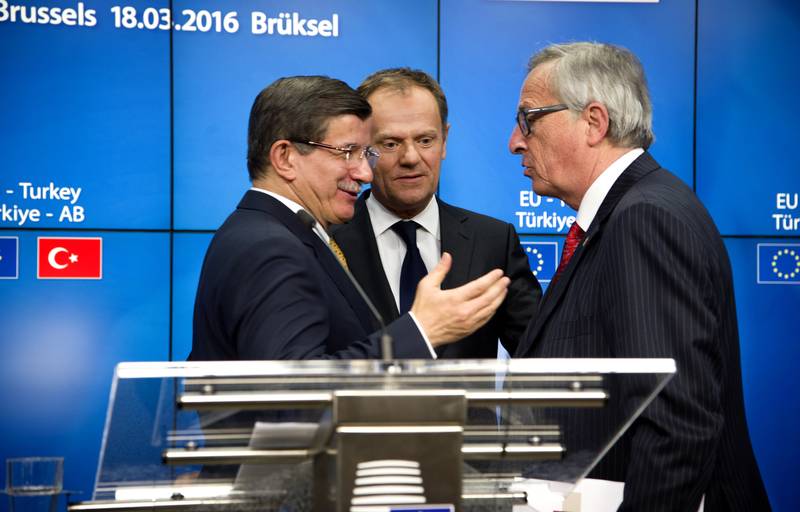 Turkey fulfils its commitments on the Ankara protocol, among which is working on a sustainable solution to the Cyprus issue.
Turkey fulfils its commitments on the Ankara protocol, among which is working on a sustainable solution to the Cyprus issue.
14 chapters have been opened with Turkey to date. Provisionally closed is just one – “Science and research”. And at the back of the line, after these two very difficult countries, await also Macedonia, which is in a negotiations mode that could, however, end up being reviewed, because Macedonia no longer conforms with the requirements for starting negotiations; Bosnia and Herzegovina, Kosovo, and Albania. Each one of them with heavy post-war heritage or problematic bilateral relations. The enlargement fatigue is now more of an exhaustion and it is on both sides. 28 members are already too many to the EU. The referendum for Great Britain’s remaining in the EU will surely have a sound impact on the entire Union and the enlargement process.
Enlargement policy urgently needs a refresh and even a restart. By all accounts, it will remain in a waiting mode until the situation is stabilised and it becomes clear what will remain of the EU and how will it continue forward. There is a very clear possibility that the enlargement process becomes much more demanding and get delayed further in time, which bodes nothing good for stability in the region. But it will not be well for the EU either if it compromises with its requirements, as is already demonstrated by problems in some existing members. And until then, Montenegro remains a frontrunner in a race of one.
Translated by Stanimir Stoev
 Bakir Izetbegovic, Andrej Plenkovic | © Council of the EU
Bakir Izetbegovic, Andrej Plenkovic | © Council of the EU Aleksandar Vucic, Recep Tayyip Erdogan | © Serbian Presidency
Aleksandar Vucic, Recep Tayyip Erdogan | © Serbian Presidency Jean-Claude Juncker, Zoran Zaev | © European Commission
Jean-Claude Juncker, Zoran Zaev | © European Commission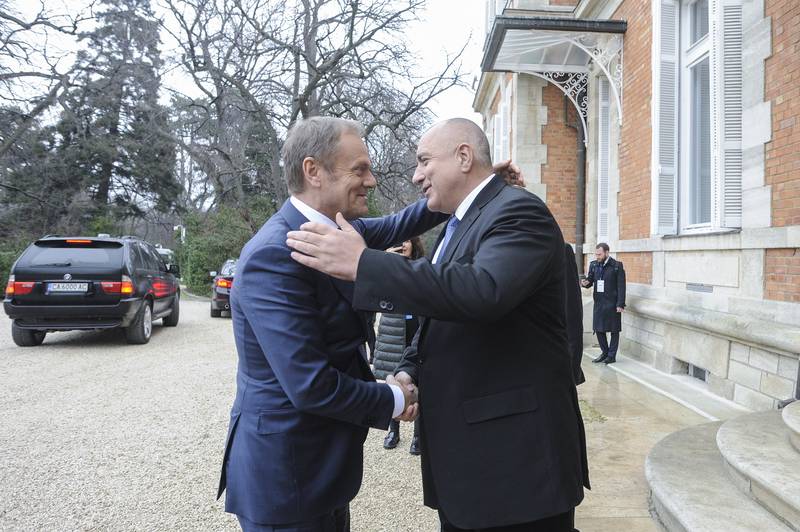 Donald Tusk, Boyko Borissov | © Council of the EU
Donald Tusk, Boyko Borissov | © Council of the EU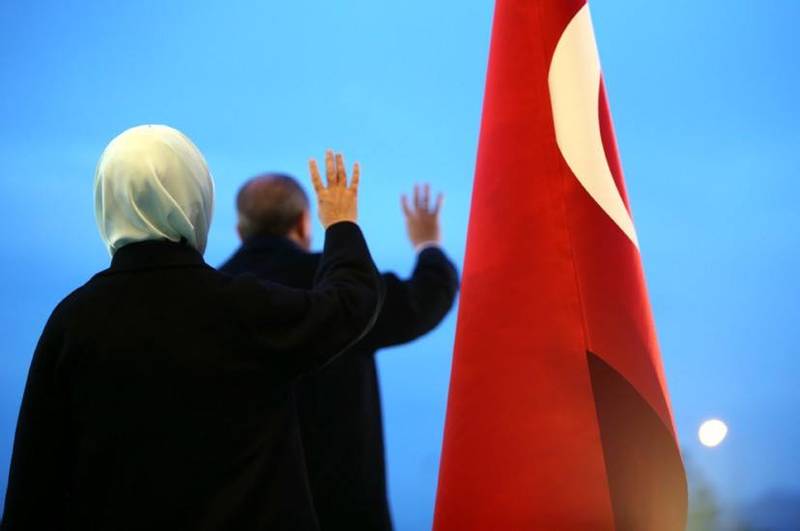 | © Turkey Presidency
| © Turkey Presidency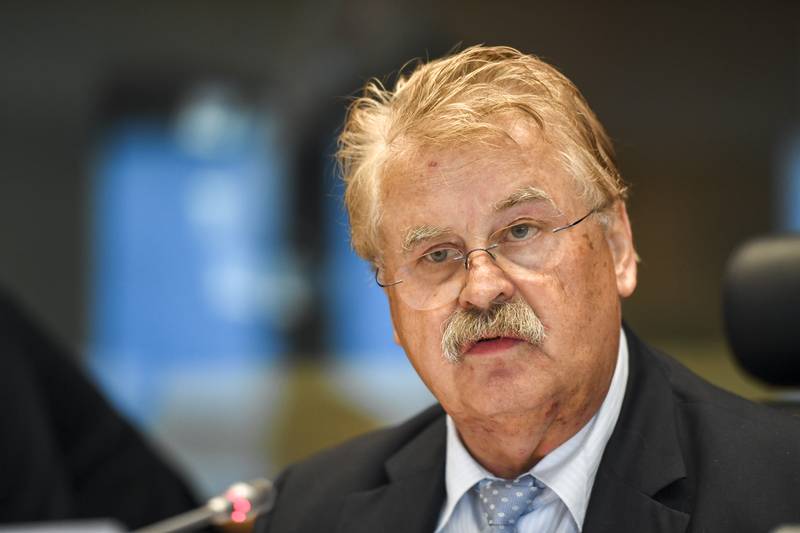 Elmar Brok | © European Parliament
Elmar Brok | © European Parliament